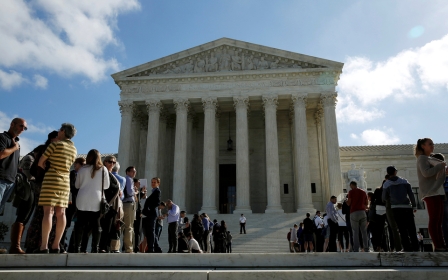US judge blocks Trump's third travel ban
A US judge on Tuesday blocked President Donald Trump's latest bid to impose restrictions on citizens from eight countries entering the United States, which had been set to take effect this week.
The open-ended ban, announced last month, targeted people from Iran, Libya, Syria, Yemen, Somalia, Chad and North Korea, as well as certain government officials from Venezuela.
It was the latest version of the "Muslim ban" that had previously targeted six Muslim-majority countries, but had been restricted by the US Supreme Court.
The state of Hawaii sued in federal court in Honolulu to block Trump's latest policy, arguing that federal immigration law did not give him the authority to impose the restrictions.
US District Judge Derrick Watson in Honolulu had previously blocked Trump's last travel ban in March. In his ruling on Tuesday, Watson said Hawaii is likely to succeed in proving that Trump's latest travel ban violates federal immigration law.
The policy "suffers from precisely the same maladies as its predecessor: it lacks sufficient findings that the entry of more than 150 million nationals from six specified countries would be 'detrimental to the interests of the United States'," Watson wrote.
The American Civil Liberties Union (ACLU) said on Twitter that the judge’s decision is not surprising.
Hawaii Attorney General Doug Chin said in a statement: "Today is another victory for the rule of law."
The White House on Tuesday called the ruling “dangerously flawed” and the Justice Department vowed to appeal the decision.
Trump had promised as a candidate "a total and complete shutdown of Muslims entering the United States".
Last week, the US Supreme Court threw out an appeals court ruling that struck down the now-expired second executive order.
After challenges in lower courts, the Supreme Court had ruled that the second ban can temporarily apply to travellers who do not have bona fide relations with a US person or entity, opening the door to new legal battles over the definition of such ties.
Stay informed with MEE's newsletters
Sign up to get the latest alerts, insights and analysis, starting with Turkey Unpacked
Middle East Eye delivers independent and unrivalled coverage and analysis of the Middle East, North Africa and beyond. To learn more about republishing this content and the associated fees, please fill out this form. More about MEE can be found here.




